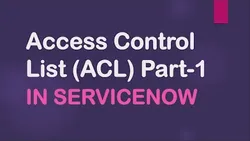
Foundations of Public Health Practice: The Public Health Approach 
Imperial College London's Foundations of Public Health Practice course provides an introduction to the public health approach, exploring the principles and practice of public health. It covers topics such as health promotion, health protection, and health services. ▼
ADVERTISEMENT
Course Feature
![]() Cost:
Cost:
Free
![]() Provider:
Provider:
Coursera
![]() Certificate:
Certificate:
Paid Certification
![]() Language:
Language:
English
![]() Start Date:
Start Date:
Self Paced
Course Overview
❗The content presented here is sourced directly from Coursera platform. For comprehensive course details, including enrollment information, simply click on the 'Go to class' link on our website.
Updated in [March 06th, 2023]
This course provides an overview of the foundations of public health practice, including a breakdown of public health conceptual frameworks and the four domain model. It covers topics such as health improvement, health protection, healthcare public health, health intelligence, and the domains of public health. It also provides an introduction to ethics in public health practice, utilitarianism, and social justice. Additionally, the course covers a history of public health, from its origins and genesis to the modern world, as well as a movement for global health and international governance. Finally, the course includes a practitioner interview to discuss the importance of the domains of public health.
[Applications]
The application of this course can be seen in the development of public health initiatives and policies. It can be used to inform the development of public health strategies and interventions, as well as to provide guidance on ethical considerations in public health practice. Additionally, the course can be used to inform the development of global health initiatives and to provide a better understanding of the history and evolution of public health. Finally, the course can be used to provide a better understanding of the four domains of public health and the importance of each domain in public health practice.
[Career Paths]
1. Public Health Officer: Public health officers are responsible for developing and implementing public health policies and programs. They work to improve the health of communities by identifying and addressing health issues, developing and implementing health promotion and disease prevention strategies, and providing health education and outreach. They also monitor and evaluate the effectiveness of public health programs and policies. As the public health field continues to evolve, public health officers must stay up to date on the latest trends and developments in the field.
2. Epidemiologist: Epidemiologists are public health professionals who study the causes and patterns of disease in populations. They use data from surveys, laboratory tests, and other sources to identify risk factors and develop strategies to prevent and control the spread of disease. Epidemiologists also work to identify and address health disparities in communities. As the field of public health continues to grow, epidemiologists are increasingly in demand to help address public health challenges.
3. Health Educator: Health educators are public health professionals who work to promote health and wellness in communities. They develop and implement health education programs, provide health information and resources, and work to create a culture of health in their communities. Health educators must stay up to date on the latest trends and developments in public health and be able to effectively communicate health information to their target audiences.
4. Public Health Administrator: Public health administrators are responsible for managing public health programs and services. They develop and implement policies and procedures, manage budgets, and oversee staff. As the public health field continues to evolve, public health administrators must stay up to date on the latest trends and developments in the field. They must also be able to effectively manage and lead teams in order to ensure the success of public health programs and services.
[Education Paths]
1. Bachelor of Science in Public Health: This degree path provides students with a comprehensive understanding of public health principles and practices. Students learn about the history of public health, the four domains of public health, health improvement, health protection, healthcare public health, and health intelligence. They also gain an understanding of ethics, social justice, and global health. This degree path is becoming increasingly popular as public health issues become more pressing and complex.
2. Master of Public Health: This degree path provides students with a deeper understanding of public health principles and practices. Students learn about the history of public health, the four domains of public health, health improvement, health protection, healthcare public health, and health intelligence. They also gain an understanding of ethics, social justice, and global health. This degree path is becoming increasingly popular as public health issues become more pressing and complex.
3. Doctor of Public Health: This degree path provides students with an advanced understanding of public health principles and practices. Students learn about the history of public health, the four domains of public health, health improvement, health protection, healthcare public health, and health intelligence. They also gain an understanding of ethics, social justice, and global health. This degree path is becoming increasingly popular as public health issues become more pressing and complex.
4. Master of Science in Health Informatics: This degree path provides students with an understanding of the use of technology and data to improve public health. Students learn about the use of data and technology to improve health outcomes, the use of data to inform public health decisions, and the use of technology to improve access to healthcare. This degree path is becoming increasingly popular as technology and data become more important in public health.
Course Syllabus
Introducing the wider determinants of health
Socio-economic status (SES)
Deprivation - a spatial measure
Equity and equality
Examples and implications of inequality
Adverse Childhood Experiences (ACEs)
Pros & Cons

Comprehensive lectures and external materials.

Enhances public health knowledge and skills.

Context informed interventions at population level.

Assignments rely on understanding and applying knowledge.

Engagement with faculty/staff of the course.

Some background in epidemiology needed.

Better engagement with faculty/staff needed.

Memorisation and recall required.

Limited examples of real life application.

Course is online only.
Course Provider

Provider Coursera's Stats at AZClass
Discussion and Reviews
0.0 (Based on 0 reviews)
Explore Similar Online Courses

ACL in ServiceNow

Lean Six Sigma Foundations

Python for Informatics: Exploring Information

Social Network Analysis

Introduction to Systematic Review and Meta-Analysis

The Analytics Edge

DCO042 - Python For Informatics

Causal Diagrams: Draw Your Assumptions Before Your Conclusions

Whole genome sequencing of bacterial genomes - tools and applications

Healthy and Sustainable Foods

Helping Families Avoid Negative Court Involvement Teach-Out

Antibiotic Stewardship
 Related Categories
Related Categories
 Popular Providers
Popular Providers
Quiz
 Submitted Sucessfully
Submitted Sucessfully
1. What is the four domain model?
2. What is the purpose of ethics in public health practice?
3. What is the main focus of the movement for global health?
4. What is the main purpose of public health practice?
Correct Answer: To improve the health of the population.


Start your review of Foundations of Public Health Practice: The Public Health Approach